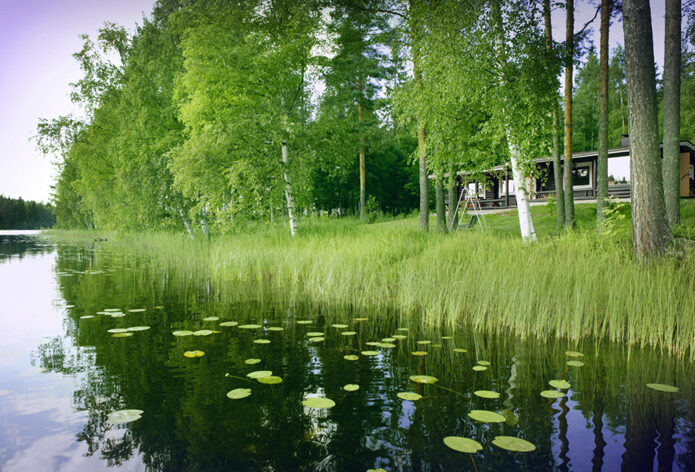Improved wastewater treatment in private households

With loans from NIB, Aktia Savings Bank and Sampo Bank will finance environmental loans to private households, farms, and small and mediumsized companies. The loans will be directed to improvements in wastewater treatment, housing insulation and fertiliser handling, to name a few examples.
“We are very pleased to be able to support environment-friendly alternatives,” says Jarl Sved, Deputy Managing Director of Aktia.
Aktia Savings Bank is the intermediary bank for NIB’s loan of EUR 30 million, and will channel the funds to environmental projects with the aim of improving wastewater treatment and the use of renewable energy sources in rural areas of Finland.
“We will lend in rather small amounts, four to five figures,” says Mr Sved.
Small-scale and environment-friendly
Using the funds from NIB, Aktia’s onlending will target small-scale, environment-friendly investments that reduce diffuse emissions. The aim is to promote alternatives that treat or reduce discharges from households, farms and small and medium-sized enterprises. Diffuse discharges are emissions from large areas, or from several emission sources that are hard to identify.
“This is a unique loan for NIB, since we for the first time are reaching private persons in our lending. According to our strategy of financing environmentenhancing investments, this is a concrete way to improve the environment on a grass-root level,” says Kim Krokfors, Senior Manager at NIB.
“We are very pleased to collaborate with NIB, being pioneers in these kinds of loans,” adds Mr Sved.
NIB’s loan focuses on projects with positive environmental impacts in the rural areas and the archipelago of Finland. The aim is to support investments that reduce diffuse emissions into rivers and lakes.
In private households such investments may include installing new heating systems using ground heat. In residential buildings, the loans could be used for installing better insulated windows in order to reduce energy spillage and thus improve energy efficiency. On farms, the goal might be to improve fertiliser or manure handling.
Burning topic
The treatment of wastewater in holiday homes is a burning topic. Calculations show that almost a million holiday homes in Finland are not connected to municipal wastewater systems, but treat their wastewater on site. The wastewater treatment is in many cases obsolete or otherwise ineffective-if there is any at all. The untreated wastewater runs into residential areas, lakes and watercourses and from there onwards to the Baltic Sea.
A part of NIB’s loan to Aktia will target investments to improve wastewater treatment in holiday homes.
“Naturally, we hope that there will be a demand for these kinds of environmental loans,” says Mr Sved.
It is very likely. Finnish legislation adopted in 2003 sets requirements for household wastewater treatment. According to the law, all households that are not connected to municipal wastewater treatment systems must, by 2014, treat their wastewater before it drains into the ground and watercourses. The law applies to some 350,000 permanent residences, and a further 450,000 holiday homes in Finland.
The discharge of nitrogen and phosphorus is considered to be one of the biggest reasons for the eutrophication of the Baltic Sea. A big part of the nitrogen and phosphorus discharge from Finland originates from untreated wastewater from rural residential areas and agriculture.
The ecological health of the Baltic Sea and actions with regard to climate change are high priorities in NIB’s lending activities. The loan to Aktia is being drawn from NIB’s Baltic Sea Environment Financing Facility, set up in February 2008.
